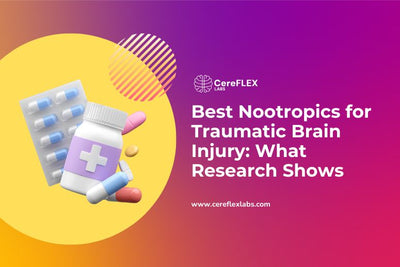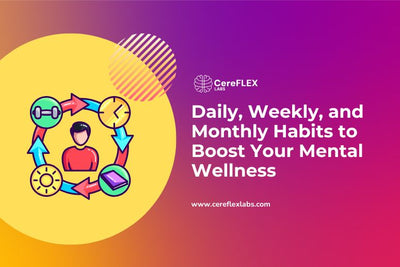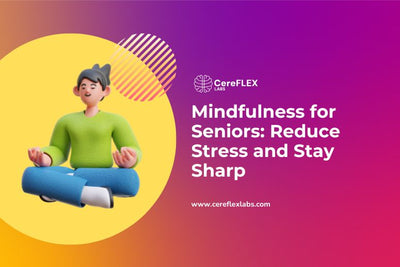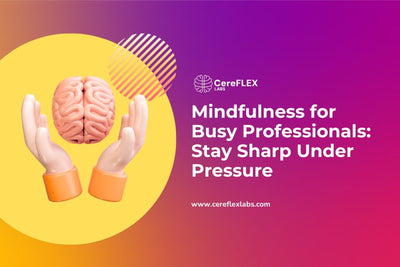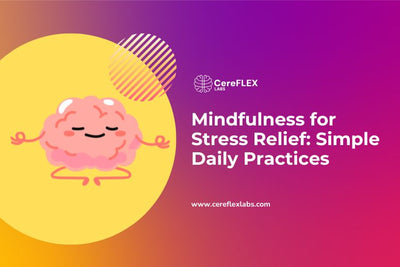Nootropics—sometimes called “smart drugs” or cognitive enhancers—have gained popularity as people look for ways to support focus, productivity, and mental clarity.
From university students pulling late nights to professionals navigating high-pressure roles, more individuals are turning to nootropics to help maintain their cognitive edge.
But with growing interest comes a critical question: Are nootropics legal where you live?
Can you buy them over the counter? Import them from abroad? Use them without a prescription? The answer varies widely depending on the compound and the country.
Some are approved as over-the-counter supplements. Others require a prescription. A few are considered controlled substances and could be flagged or seized at customs.
Here is the Quick Answer |
|
The legality of nootropics depends on your country and the specific substance. In Canada, natural options like L-Theanine are legal and widely available. Others, like Modafinil or Piracetam, require a prescription and may be seized if imported without one. To stay compliant and safe, research local regulations and choose legally approved options—such as CereFLEX Labs’ AM/PM Protocol, a natural, Health Canada–compliant system designed to support focus and brain function without regulatory risks. |

What are nootropics?
Nootropics—also known as cognitive enhancers or “smart drugs”—are substances used to support mental performance.
They’re often taken to promote focus, memory, alertness, creativity, or mood balance. The term was first introduced in the 1970s, derived from the Greek words nous (mind) and trepein (to bend).
Today, people from all walks of life use nootropics: students aiming to stay sharp, professionals seeking sustained focus, and athletes or creatives looking to maintain mental stamina.
For a closer look at commonly used options, check out our blog on top nootropics for productivity & mental clarity.
Types of Nootropics: Natural vs Synthetic
Nootropics generally fall into two main categories based on their origin and regulation: natural and synthetic.
Natural Nootropics
These are derived from plants, herbs, or naturally occurring compounds. Many are classified as supplements and available over the counter in Canada and other countries.
Examples include L-Theanine (an amino acid found in green tea, often used to support calm alertness) and Ginkgo Biloba (a botanical ingredient studied for its role in circulation and memory support).
Synthetic Nootropics
These are man-made compounds, often developed to treat specific medical conditions like narcolepsy or ADHD. While some are used off-label for cognitive support, they typically require a prescription.
Examples include Modafinil (approved in Canada for sleep disorders; used off-label to promote wakefulness) and Adderall (a stimulant medication prescribed for ADHD; regulated under controlled substance laws).
Understanding the difference between these two types is essential—especially when it comes to legality, availability, and safety considerations in your country.

How Nootropics Are Classified
Understanding whether a nootropic is legal starts with how it's classified. Regulatory agencies group them based on how they're used, their intended effects, and how they're sold or prescribed.
1. Prescription-Based Nootropics
These compounds are regulated as pharmaceutical drugs and require a doctor’s prescription. They may have strong cognitive effects, but using them without medical supervision or legal authorization may lead to safety risks and legal penalties.
Examples include Adderall, Modafinil, and Ritalin.
2. Over-the-Counter (OTC) Nootropics
These can be purchased without a prescription and are often sold as dietary supplements or natural health products. They include both natural compounds and synthetic ingredients that are not classified as controlled substances.
Examples include L-Theanine, caffeine, and omega-3 fatty acids
3. Supplements vs Controlled Substances
In Canada and many other countries, supplements like vitamins, amino acids, and herbal extracts fall under looser regulatory oversight—though they must still meet labelling and safety standards.
Controlled substances, on the other hand, are subject to national drug laws. Selling, importing, or possessing them without a prescription may carry legal consequences.

Legality of Nootropics in Different Jurisdictions
The legal status of nootropics varies significantly depending on where you live. Some are available over the counter, others require a prescription, and a few are restricted entirely.
If you're based in Canada—or buying from abroad—it's important to know what’s permitted locally and what might be flagged by customs.
Canada
In Canada, nootropic products are regulated by Health Canada under two primary categories:
- Drugs, which must have a Drug Identification Number (DIN)
- Natural Health Products (NHPs), which are registered under the Natural and Non-prescription Health Products Directorate (NNHPD)
Here’s how common nootropics are treated:
- Racetams (e.g., Piracetam): Do not have DINs and cannot be sold by Canadian retailers. Personal possession is legal and importation for personal use (up to a 3-month supply) is tolerated but risky—especially from non-U.S. sources like China
- Modafinil: Requires a prescription and is considered a controlled substance
- Natural nootropics (e.g., L-Theanine, Rhodiola, Ginkgo Biloba): Classified as NHPs and legal for sale and use
Summary for Canadian users:
✅ You can possess and use racetams
✅ You can import them (within limits), but seizure risk exists
❌ You cannot legally buy synthetic nootropics from Canadian suppliers without a prescription
✅ Natural options are widely available and legal to purchase over the counter
United States
Most nootropics are legal to own and use, but many (like Piracetam) are not authorized as dietary supplements. Modafinil requires a prescription.
Australia
Schedule 4 drugs like Modafinil and Piracetam require prescriptions. Natural nootropics are legal, and the Personal Importation Scheme allows a 3-month supply with documentation.
United Kingdom
Possession is often legal, but importing or selling psychoactive substances without proper classification can violate the Psychoactive Substances Act.
Germany
Synthetic nootropics like Piracetam are prescription-only and cannot be imported. Herbal products are more common but may still require a prescription.
Japan
Strict rules apply. Modafinil and similar compounds require prescriptions. Unauthorized imports may lead to customs violations.
Brazil
Regulated via a stripe system. “Red Stripe” drugs (e.g., Coluracetam) require prescriptions, but many others (e.g., Phenibut, Aniracetam) are available OTC.
Russia
Home to many nootropic developments. Most racetams are legal and accessible, though prescription status can vary.
India
Many racetams and synthetics are widely available. Modafinil is OTC in some areas but still subject to variable regional enforcement.
European Union
Laws differ by country. For example most racetams require prescriptions in France, Germany, and Italy while the Czech Republic, Belgium, Ukraine are generally more lenient
How to Stay on the Right Side of the Law
Whether you're a personal user or considering launching a nootropic-based product, staying compliant with local laws is essential.
This is especially important in Canada, where some cognitive enhancers fall into regulated categories that can impact your ability to purchase, import, or use them legally.
Here are key guidelines to help you avoid unintentional legal risks:
Research Local Regulations First
Before buying or importing any nootropic, check how it’s classified in your country.
In Canada, Health Canada distinguishes between natural health products, prescription drugs, and unapproved substances. While you may be allowed to possess certain nootropics for personal use, importing or selling them could violate federal laws.
Even if a product is available internationally, it may not meet Canadian compliance standards.

Buy from Legal, Reputable Sources
To minimize risk, purchase only from vendors that are transparent about their ingredients, comply with labelling requirements, and avoid unauthorized claims.
Choose Canadian-registered suppliers or those with clear legal standing. Avoid sellers who market synthetic compounds “for research use” without proper regulatory status.
Avoid Controlled Substances Without a Prescription
Substances like Modafinil, Adderall, or Ritalin require a valid prescription in Canada. Ordering these online without medical authorization can lead to package seizure, legal notices, or more serious enforcement.
Even if peer forums or blogs suggest workarounds, bypassing prescription controls is not only risky—it’s illegal.
Consult a Healthcare Professional
If you're exploring nootropic options to support focus, memory, or cognitive wellness, speak to a licensed practitioner. They can help you navigate options that are both effective and compliant, especially if you're already taking medications or managing health conditions.
A Smarter, Safer Way to Support Cognitive Performance
Looking for a legal, accessible way to support focus and mental clarity—without the risks of grey-market substances or prescription-only products?
CereFLEX Labs’ AM/PM Protocol is a two-part, routine-based system made with ingredients used to support cognitive clarity, stress response, and daily brain function—formulated in alignment with Canadian regulations.
AM Brain Morning Formula
Designed to support daytime focus and mental energy using ingredients such as Choline Bitartrate, Rhodiola Rosea, Ginseng, Holy Basil, and N-acetyl-L-cysteine (NAC).
This daytime blend includes botanicals and nutrients traditionally used to support attention, circulation, and antioxidant activity.
PM Cognitive Support Evening Formula
Created to complement your body’s rest cycle while continuing to nourish your brain.
It includes magnesium, Ginkgo Biloba, vitamin B6, lemon balm extract, and other calming, antioxidant-rich ingredients
This formula is used to help support relaxation, cognitive recovery, and cellular health.
➤ Note: CereFLEX does not contain prescription-only ingredients and complies with Canadian supplement regulations. Always consult your healthcare provider before adding new supplements to your routine.
Conclusion
Nootropics can play a role in supporting daily cognitive function—but their legal status varies widely. In Canada, natural ingredients like L-Theanine or Bacopa monnieri are generally legal and accessible, while synthetic compounds such as Modafinil or Piracetam are regulated as prescription drugs or unapproved substances.
Understanding these distinctions is essential—especially when buying online, importing across borders, or building a long-term supplement routine.
If you’re looking for a trusted, legal option designed with safety, clarity, and compliance in mind, CereFLEX Labs’ AM/PM Protocol offers a structured, routine-based approach made with ingredients used to support focus, stress response, and cognitive clarity—without stepping into regulatory grey zones.
Support your brain the smart, legal way—with CereFLEX.

